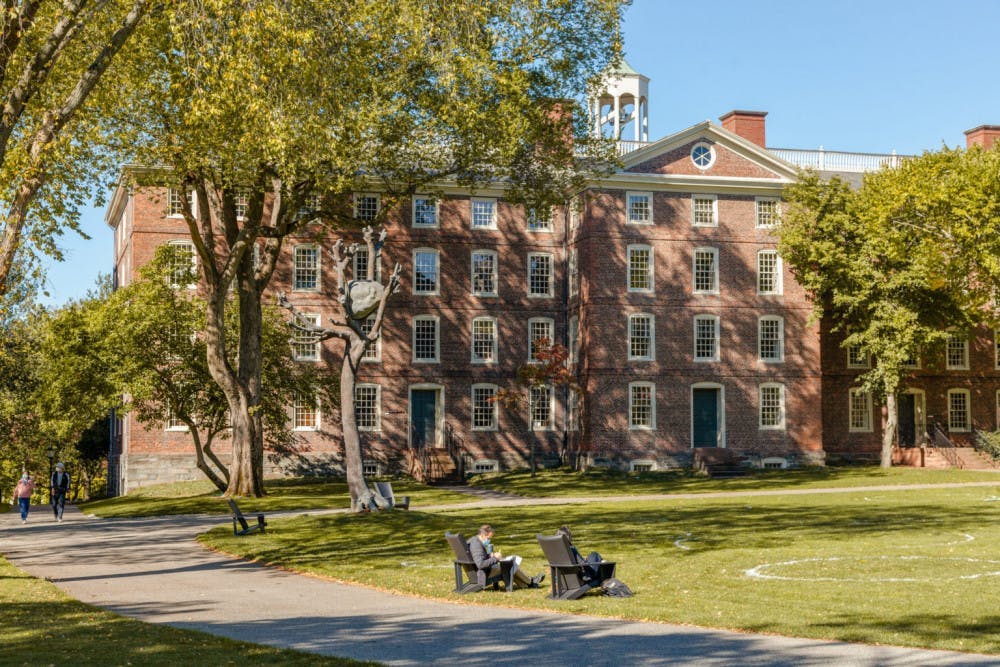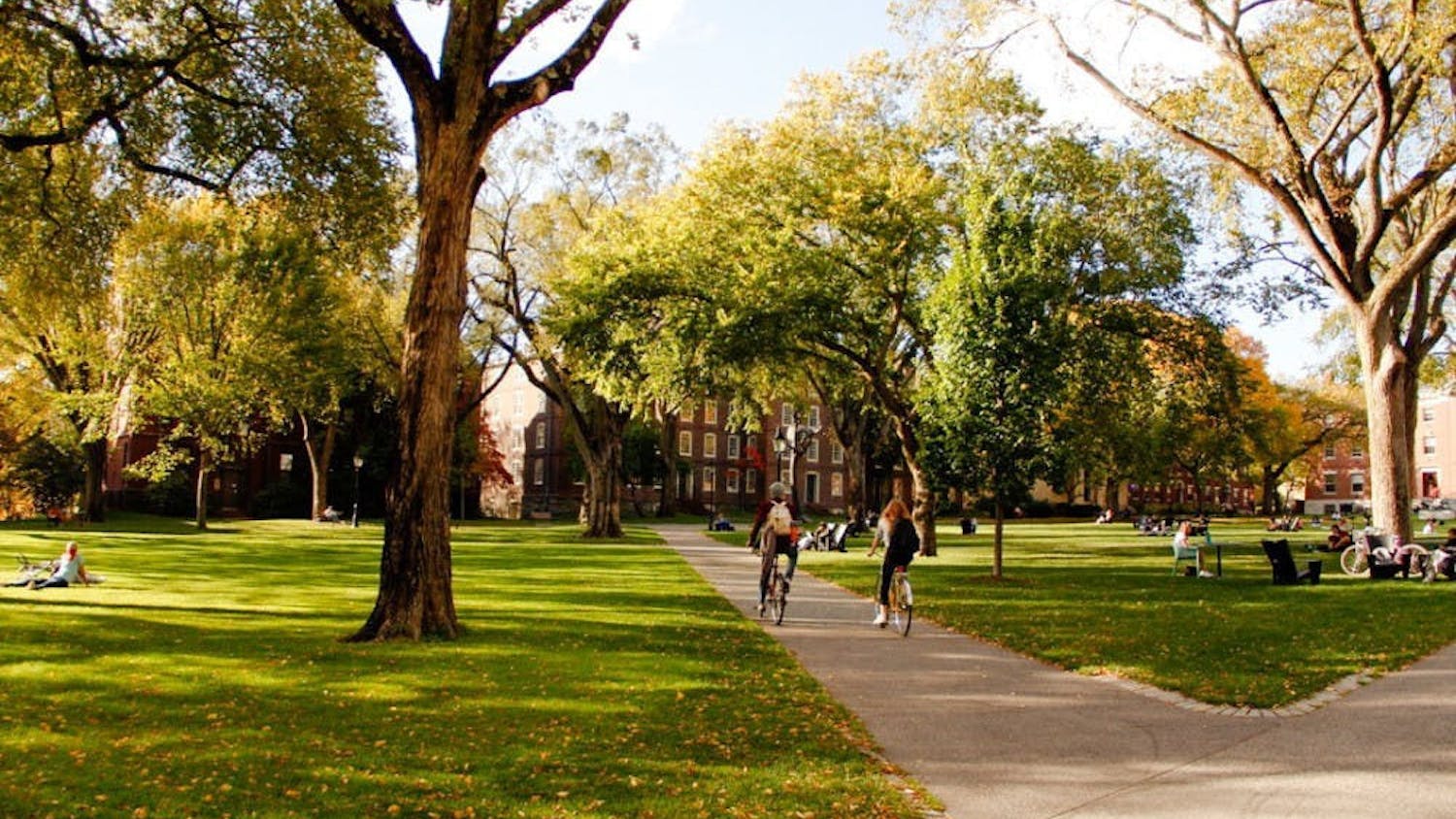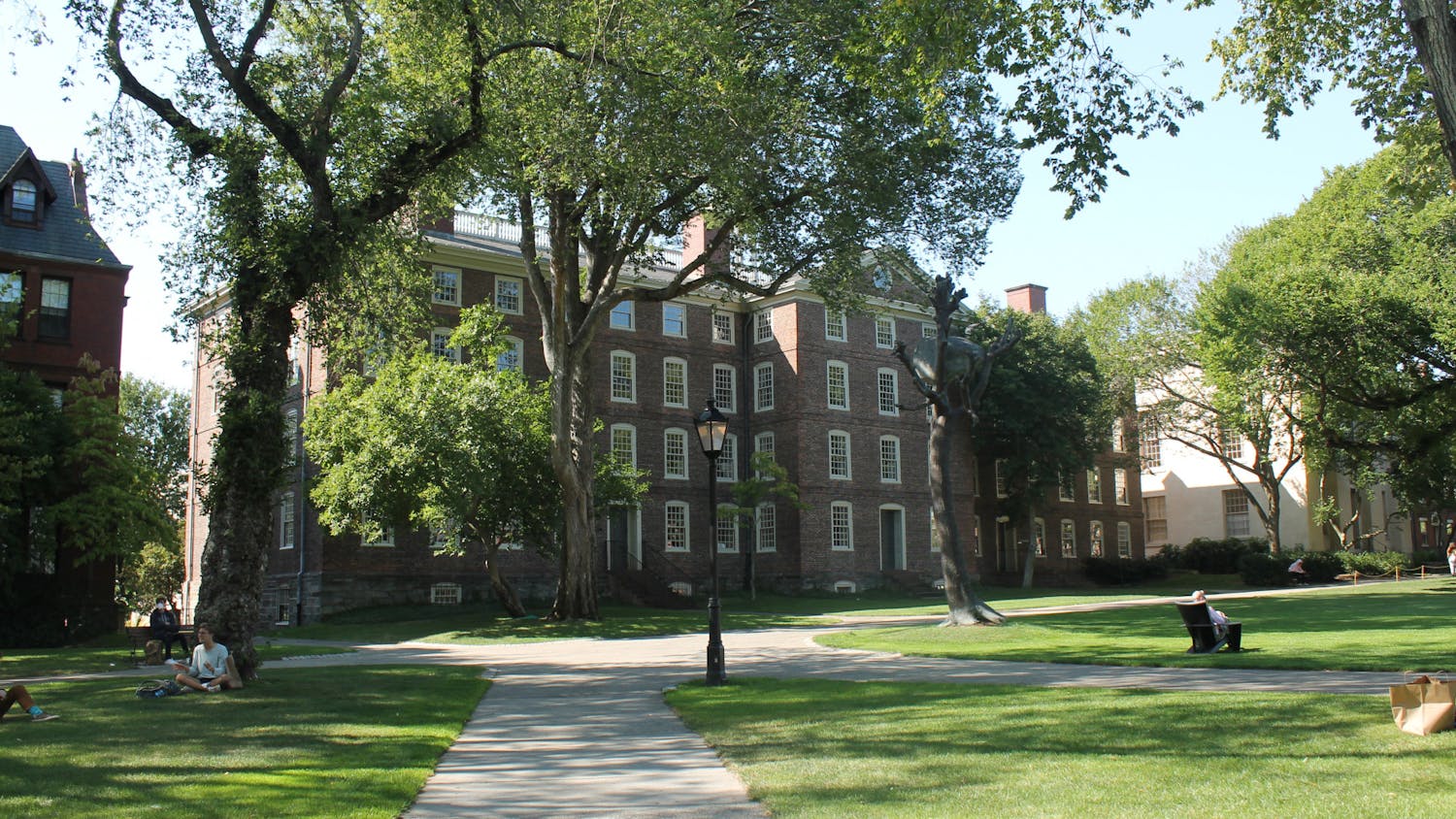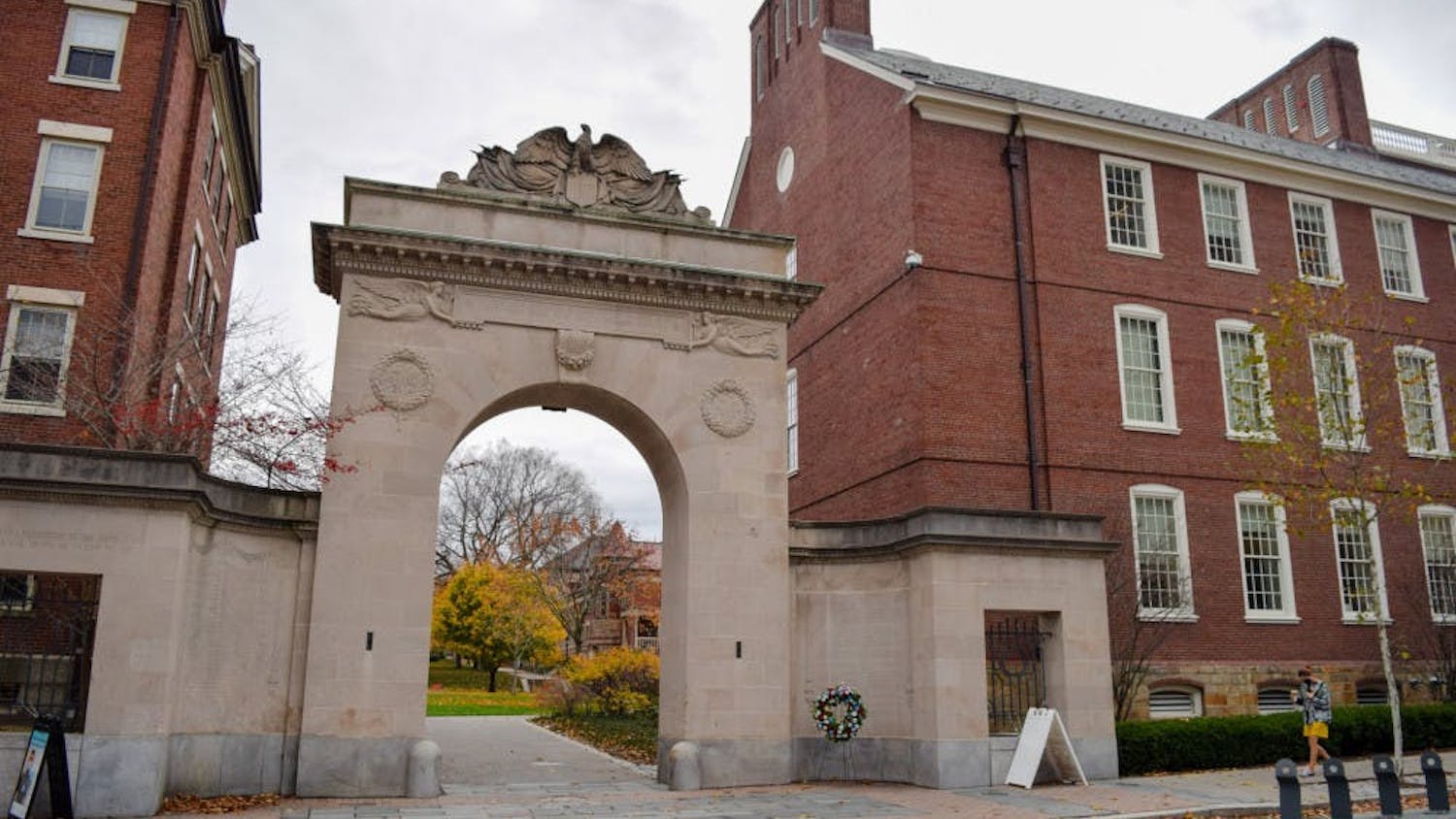Members of Brown’s administration and faculty discussed the University’s financial position, the plan to host Afghan students who were granted asylum and COVID-19 updates at Tuesday’s faculty meeting.
Paxson’s report: endowment, financial aid, deficit
President Christina Paxson P’19 opened her report with updates on Brown’s financial standing. Paxson focused on the strength of last year’s endowment returns, which left the endowment at close to $7 billion — nearly double its size from 2012. She specifically emphasized that endowment returns contribute to scholarships, fellowships and prizes, and has driven the University’s recent expansion of undergraduate financial aid by roughly $25 million.
Paxson also spoke of the success of the University’s recent fundraising effort, the BrownTogether Campaign. Launched in 2015, the campaign has reached its target of raising $3 billion, a year earlier than planned. While Paxson explained that it will take time for the University to feel the full effects of the campaign, it has already conducted numerous capital projects using the fundraising, including building the Engineering Research Center and Performing Arts Center.
The University plans to extend the campaign, though Paxson stated that “concrete plans” about “the timing, the amount and the priorities” of such an extension have not yet been decided. The University expects to make an announcement early next year.
Regarding the deficits of Fiscal Years 2020 and 2021, along with concerns about possible future market corrections, Paxson emphasized that the University has a plan in place to eliminate a long-standing structural deficit.
“I feel really good about where the University is and where we’ll be going over the next three to five years,” Paxson said.
The University has also been approved for funding from FEMA to help cover testing costs and decrease the deficit, The Herald previously reported.
Also at the faculty meeting, Paxson reviewed the October Corporation meeting where three major initiatives were approved. These include eliminating the consideration of home equity in financial aid and a reduction of summer earning expectations for students with no parent contribution, beginning an initiative toward need-blind admissions for international undergraduate students and developing a college access program for local public schools.
“The single biggest factor in shaping a diverse student body in all dimensions is the generosity of financial aid,” Paxson said. “Frankly, when you compare Brown to some of our peers, we’re still not doing as well” in regards to financial aid.
The University hopes that eliminating home equity considerations in financial aid and reducing summer earning expectations will help foster more applications from and admissions of middle-income students.
Paxson cited need-blind admissions for international undergraduate students as one of her initial presidential priorities. She hopes the initiative will help diversify the international student community at Brown.
The University will grow the budget for international student financial aid in 2022-23 and hopes to be fully need-blind by 2026-27.
Paxson also spoke on the newly-announced college access program for local public high school students, which was initially recommended by the Task Force on Anti-Black Racism. The program is currently in its planning stages and will be developed in close conjunction with the Swearer Center, Summer@Brown, other University centers and external stakeholders. It will focus on providing tutoring, mentoring and other programming to local public school students.
Paxson did not immediately know exactly how much the program will cost, but expressed the University’s commitment to public K-12 education in Providence. “I think most people in this community would like us to do more, and we’d like to do more,” Paxson said.
Locke’s report: Afghan students, 2018-19 Staff Climate Survey
Provost Richard Locke P’18 began his report with an update on the Afghan students seeking asylum who are enrolled in the University in collaboration with the University in Exile Consortium. The Herald previously reported that the University was planning to host 16 students, but that number dropped to 12 after some of the accepted students chose to find work instead. The students are currently located in Fort McCoy, Wisconsin and are awaiting further processing by the state department. Locke emphasized that the University’s top concern is the “health and wellness” of these students.
Locke applauded the more than 120 faculty members who offered their courses for auditing along with mentoring services for the Afghan students, citing it as a “wonderful testament to the Brown community.”
Locke concluded his report by referencing the 2018-19 Staff Climate Survey, which found that 8% of Brown’s staff either disagreed or strongly disagreed with the statement that they were respected by the University faculty. The Office of the Provost will be working to address this issue, Locke said.
“We shouldn’t have that in our community,” Locke said. “Everyone should feel truly respected here. I think there’s a lot of work that we can do.”
COVID-19, faculty elections
Vice President for Planning and Policy Russell Carey ’91 MA ’06 gave the meeting’s COVID-19 update. Carey explained that as undergraduate testing decreases due to optional testing, the University expects and is prepared for a slight uptick in positive cases.
Carey also expressed that the University is “going to continue to monitor mask-wearing” indoors in response to faculty concerns.
Shriram Krishnamurthi, professor of computer science, spoke on behalf of the Technology for Education Committee, which is running a study that will look at building new educational tools and models in education, research and infrastructure technology.
The Committee on Nominations revealed the Special Fall 2021 Election results from October. John Bodel, professor of classics and history, was elected to a one-and-a-half-year interim appointment on the Academic Priorities Committee, beginning next spring and running through the 2022-23 academic year.
Diane Silva Pimentel, senior lecturer in education, was elected by a 93% majority to an interim appointment on the Standing Committee on the Academic Code for the 2021-22 academic year.
The faculty meeting also included moments of silence for the late Edgar L. Marston Professor of Psychology Russel Church, the late Professor Emeritus of Psychology Julius Kling and Professor Emeritus of Psychology Lewis Lipsitt.

Alex Nadirashvili was the managing editor of multimedia and social media for The Brown Daily Herald's 133rd Editorial Board. As a former University News editor, he covered faculty, higher education and student life, though his proudest legacy is The Brown Daily Herald TikTok account.





